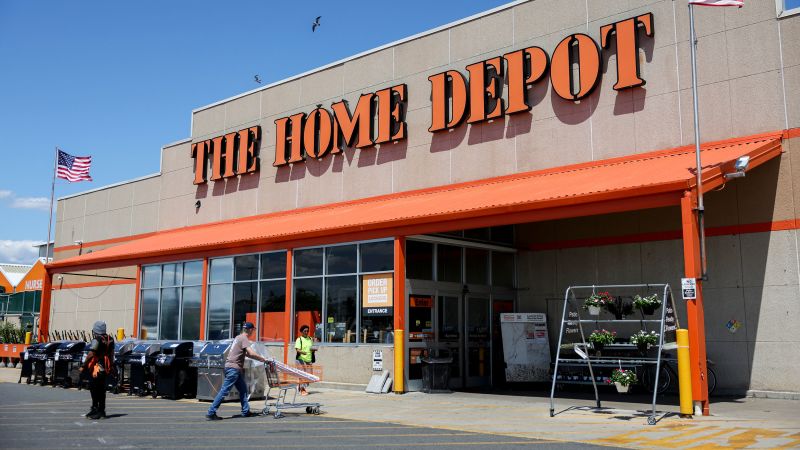Home Depot says consumers are feeling crummy about the economy, and they’re dishing out less to remodel their homes.
The home improvement giant, a bellwether of consumer spending and the housing market, lowered its sales expectations for the year. It said customers were spending less on home improvement projects, pressured by higher interest rates and concerns that the economy is getting worse.
Home Depot’s business is closely tied to the housing market, and high interest rates are putting a break on the market.
“During the quarter, higher interest rates and greater macro-economic uncertainty pressured consumer demand more broadly, resulting in weaker spend across home improvement projects,” Ted Decker, Home Depot’s CEO, said in a news release.
Home Depot’s sales grew 0.6% last quarter, snapping a five-quarter streak of declining sales. But the company said Tuesday it expects sales at stores open at least 12 months to fall between 3% and 4% this year compared to last year. That’s down from its earlier estimate that sales would fall about 1% by that measure.
Consumer demand for home improvement has been slumping for about a year, and the company said the story hasn’t changed much. Still, Decker remained optimistic, saying “The underlying long-term fundamentals supporting home improvement demand are strong.”
Home Depot’s (HD) stock fell nearly 5% in premarket trading.
Its sales boomed during the height of the pandemic as millions of people spending more time at home turned to renovations and other home improvement projects. But many consumers have since shifted from purchasing physical goods to experiences, such as travel and concerts; others have just cut back spending in general. This shift has hurt Home Depot.
Home prices are sky-high nationwide and demand for housing still overwhelms supply in most markets.
The median price of a previously owned home in the United States rose to $426,900 in June, up 4.1% from a year earlier, according to the latest data from the National Association of Realtors.
However, mortgage rates have steadily fallen over the past several weeks since reaching a 2024 peak of 7.22% in early May. Rates are down from a two-decade high seen late last year.
Read the full article here
